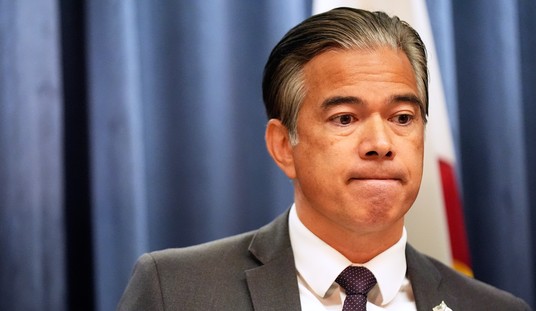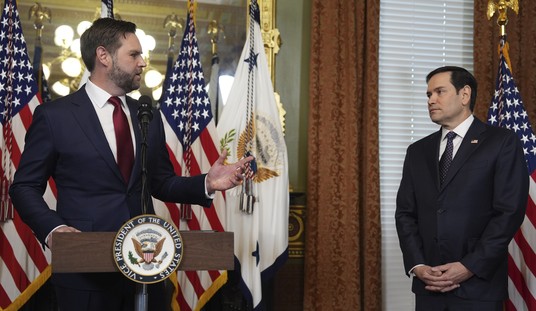We’ve assumed throughout this election cycle that the economy and jobs would drive voter choice, but that would mean a referendum on the current incumbent, something Democrats desperately wanted to avoid. Two weeks ago, Democrats promised us that they would make foreign policy the focus of the election. As I note in my column for The Week, that didn’t come from low-level party functionaries, but from the prime-time speakers — including Barack Obama himself:
Ironically, Democrats had promised a fight on foreign policy just a week earlier, at their national convention. Sen. John Kerry, the party’s nominee in 2004, called the Republican ticket “the most inexperienced foreign-policy twosome to run for president and vice president in decades.” Barack Obama himself attacked Mitt Romney and Paul Ryan as “new to foreign policy,” and warned that “they want to take us back to an era of blustering and blundering that cost America so dearly.” Democrats salivated at the prospect of highlighting Obama’s foreign-policy experience — all of which he compiled over the last three-and-a-half years — as a contrast to the GOP’s nominees, and a transparent attempt to deflect the election away from the economy.
As an old axiom warns, be careful what you wish for — you just might get it. With the explosion of violent protests in the Muslim world and the first US Ambassador killed in the line of duty since 1979, foreign policy has finally intruded in a big way in this election — and it doesn’t make Obama look good at all. When the Washington Post’s liberal columnist Richard Cohen rips a Democratic President for a feckless foreign policy, it’s a stark indicator of just how badly Obama has failed on this front:
What lessons can be learned from events in Libya? That nothing good will come out of the Arab Spring? That Arabs are volatile, easily excitable and prone to acting out? That the United States, Mitt Romney notwithstanding, cannot control everything or that the United States, Mitt Romney more to the point, has tried to control nothing? In other words, is this what happens when the United States is “leading from behind”?
This phrase, you might remember, was coined in reference to Barack Obama’s reluctance to take the lead in the NATO air campaign that toppled the dictatorship of Moammar Gaddafi. And that operation, in which the French seized the initiative, was mounted to save Benghazi, the city where the insurrection started and the one where U.S. Ambassador J. Christopher Stevens and three other Americans were killed last week. Benghazi was saved from Gaddafi’s bloody reprisals, but not from mayhem.
The notion that the United States can lead from behind is pitiful, the sorry concoction of an Obama administration that mistakes dulcet passivity for a foreign policy. The view from behind now has to be awfully depressing. Where once Obama could see the gallant tails of the French, the British, the Italians and some others, there is now no one. The predictably indignant Nicolas Sarkozy has been replaced by the soullessly pragmatic Francois Hollande, who has other fish to saute. NATO’s warplanes have returned to base and Libya, a tribal society, was left to fend for itself. It has not fended all that well.
Cohen predictably rips Romney for pointing this out, but concludes that Romney is very much right about Obama’s foreign policy of passivity:
Romney was wrong and ham-fisted and alarmingly premature to criticize Obama for a statement put out by the U.S. Embassy in Cairo. He is both wrong and dishonest to keep repeating the canard about Obama being a serial apologizer. But he is right in sensing that beyond the very Obamaness of Obama himself — the quality that made him a Nobel Peace Prize winner in the pupal stage of his presidency — lurks a foreign policy that has been more sentiment and aspiration than hard reasoning. Leading from behind is not a nifty phrase. In Libya, it’s an indictment.
Michael Ramirez distills the lessons from a week of making the Obama foreign-policy expertise the center of attention:
But will this become a foreign-policy election? In my column, I argue no — at least not for now — but that it might end up backfiring on Obama anyway:
By Monday, the Washington Post reported that the Obama campaign would shift its focus to the economy, a stark about-face from just a fortnight earlier in Charlotte, N.C.
Have events changed the nature of the election from a focus primarily on domestic policy to a debate on Obama’s handling of foreign policy? If more revelations of incompetence arise, perhaps — but at this point, that seems doubtful. When crises do erupt, they tend to take a long time to damage presidents; Jimmy Carter’s polling looked solid in September 1980, despite 10 months of a hostage crisis in Iran that echoes in today’s multiple diplomatic crises. Although foreign policy is the one area in which presidents have most authority, voters tend to grade incumbents on whether they have improved their economic situation. Voters want to know who lost the economic recovery more than they want to discuss who lost Egypt, because that has a lot more relevance to their immediate circumstances. But if the bungling continues at the White House and State Department, the risk rises that a perception of incompetence in the administration’s foreign policy will reinforce an impression of incompetence in economic policy, and create the kind of narrative that made Carter a one-term president.
In short, the argument for an economy-based election always relied on making an argument that Barack Obama has performed incompetently. These episodes reinforce the sense of incompetence and broaden it to an area that Democrats figured would be a strength for Obama in this election. That may provide a hinge that could spell doom for Obama in the election, especially if further data shows that the White House and State missed opportunities to prevent what happened in Benghazi.








Join the conversation as a VIP Member